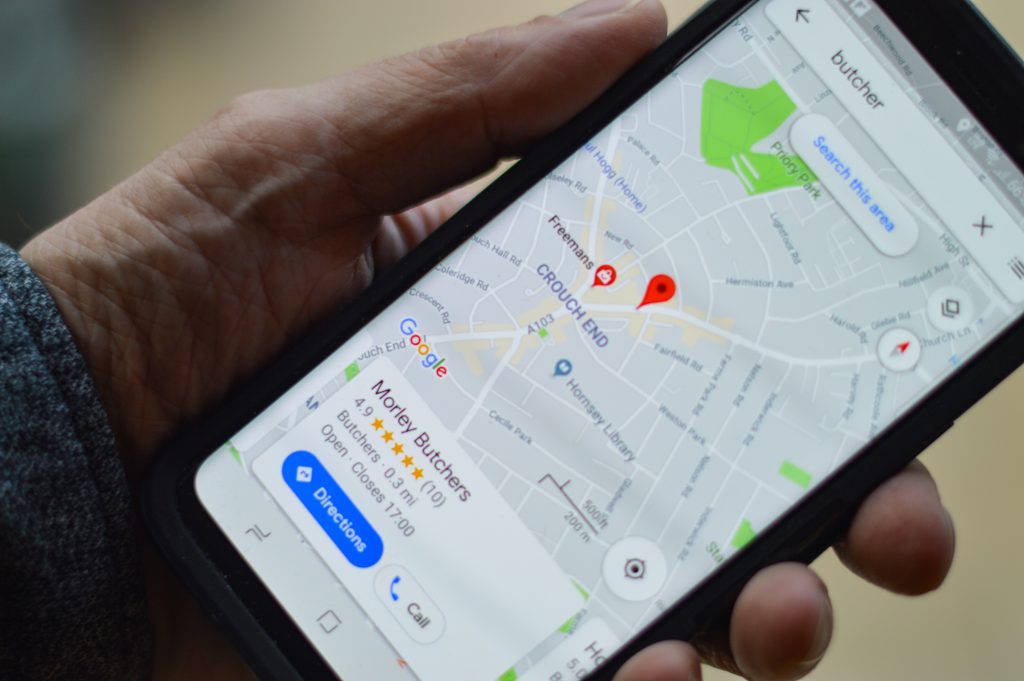Local SEO refers to the process of optimizing your online presence to attract more business from local customers. This includes optimizing your website, as well as your presence on local directories and review sites, in order to rank higher in search results for locally-based searches.
Local SEO is important for businesses because it allows them to be more visible to potential customers in their local area. With the increasing use of mobile devices, more and more people are using search engines to find businesses near them, and if your business is not optimized for local search, you may be missing out on a significant number of potential customers.
In this article, we’ll be covering advanced tactics for local SEO, such as building local links and using schema markup. These tactics can help to further boost your local search rankings and drive even more traffic and business to your website.
Building local links
What are local links

Local links are links from other websites that are local to your business and that point back to your website. These links can help to improve the local SEO of your website by showing search engines that your business is a relevant and credible source of information for people in your local area.
Some examples of local links include:
- Links from local news websites
- Links from local directory websites
- Links from other local businesses
- Links from local organizations or non-profits
- Links from local government websites
Acquiring local links can be a challenging task, but it is an important part of an effective local SEO strategy. These links provide valuable “social proof” to search engines that your business is a trustworthy and relevant resource for local customers.
How to identify local link building opportunities
There are a few different strategies you can use to identify local link building opportunities:
- Research local directories and review websites: Look for local directories and review websites that list businesses in your industry and location. These sites often provide an opportunity to add a link to your website.
- Contact local organizations and non-profits: Reach out to local organizations and non-profits to see if they have a resources or links page that you can be added to.
- Partner with other local businesses: Consider partnering with other local businesses and cross-linking to each other’s websites. This can be a win-win for both businesses, as it can help to drive traffic to both websites.
- Utilize your network: Reach out to your personal and professional network to see if they have any local link building opportunities that they can share with you. This could include connections to local news websites or industry-specific directories.
- Monitor your competitors: Keep an eye on your local competitors to see where they are getting their local links. This can give you an idea of what types of local link building opportunities may be available in your industry.
Strategies for acquiring local links
- Create high-quality, unique content: One of the most effective ways to acquire local links is to create content that is so valuable and unique that other websites will want to link to it. This could be a blog post, an infographic, or some other type of resource that is relevant to your business and your local area.
- Participate in local events: Attending and participating in local events, such as trade shows and community events, can be a great way to network and get your business noticed by local websites and organizations. These events can also provide opportunities for getting local press coverage, which can lead to local links.
- Offer to guest blog: Reach out to local websites and blogs and offer to write a guest blog post in exchange for a link back to your website. This can be a great way to get your business in front of a new audience and build local links at the same time.
- Utilize local citations: Local citations are mentions of your business on other websites, even if they don’t include a link. While they don’t have the same SEO value as a link, they can still be valuable for building local awareness and credibility.
Examples of successful local link building campaigns
Here are a few examples of successful local link building campaigns:
- A local restaurant created a series of in-depth blog posts about the local food scene, which were then picked up and linked to by several local food and lifestyle blogs.
- A local design firm partnered with a local non-profit and designed a new logo for them in exchange for a link on their website.
- A local clothing store sponsored a local fashion event and received press coverage and links from several local fashion and lifestyle websites.
Using schema markup
What is schema markup
Schema markup is a type of code that you can add to your website to help search engines understand the content on your pages. It provides additional context and information about your business, such as your business name, address, phone number, and type of business.
How schema markup can improve local SEO

By adding schema markup to your website, you can help search engines better understand the information on your pages, which can improve the way your website appears in search results. For example, if you add schema markup for your business name, address, and phone number, this information may be displayed in the search results as a rich snippet, which can make your listing stand out and increase the likelihood of a click.
Examples of schema markup for local businesses
There are many types of schema markup that you can use for local businesses, including:
- LocalBusiness
- PostalAddress
- GeoCoordinates
- OpeningHoursSpecification
- Review
How to implement schema markup on your website
There are a few different ways you can add schema markup to your website:
- Use a schema markup tool: There are several tools available that can help you generate schema markup code for your website.
- Use a plugin: If you use a content management system (CMS) such as WordPress, you may be able to use a plugin to add schema markup to your website.
- Manually add the code: You can also add schema markup manually by inserting the code into the HTML of your website.
It is important to note that you should only use schema markup for the content that is actually on your pages. Overuse or misuse of schema markup can actually harm your website’s SEO.
Other advanced tactics for local SEO
Optimizing Google My Business listing
Google My Business is a free tool that allows you to manage your business’s presence on Google, including in search results and on Google Maps. By optimizing your Google My Business listing, you can improve your local search rankings and make it easier for customers to find and contact your business. Some things you can do to optimize your Google My Business listing include:
- Verify your business and make sure all of your business information is accurate and up-to-date
- Add photos and videos of your business
- Encourage customers to leave reviews
- Use relevant and targeted keywords in your business description and categories
Using social media to improve local SEO
Social media can be a powerful tool for improving your local SEO. By regularly posting updates and engaging with your followers on social media, you can drive more traffic to your website and improve the visibility of your business to local customers. Additionally, by adding your business information and location to your social media profiles, you can make it easier for customers to find and contact your business.
Gathering and using customer reviews
Customer reviews can be a valuable source of local links and can also improve your local SEO. Encourage your customers to leave reviews on your Google My Business page, as well as on local directories and review websites. Make sure to respond to all reviews, both positive and negative, as this can help to improve the credibility of your business.
Utilizing local citations
Local citations are mentions of your business on other websites, even if they don’t include a link. These citations can help to improve the visibility and credibility of your business to local customers and can also contribute to your local SEO. Some examples of local citations include your business name, address, and phone number being listed on local directories, review websites, and industry-specific websites.
In conclusion, there are many advanced tactics that businesses can use to improve their local SEO performance. Some of these tactics include building local links, using schema markup, optimizing your Google My Business listing, using social media to drive local traffic, gathering and using customer reviews, and utilizing local citations.
It is important to stay up-to-date with the latest local SEO best practices, as search algorithms and consumer behavior are constantly changing. By regularly reviewing and updating your local SEO strategy, you can ensure that your business is well-positioned to attract local customers.
As a digital agency, we encourage you to start implementing these advanced tactics for local SEO and see the results for yourself. By taking the time to optimize your online presence for local search, you can increase the visibility and credibility of your business, and ultimately drive more traffic and revenue.



